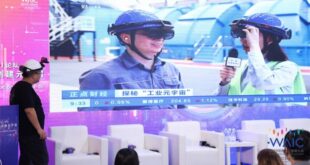Since the introduction of the iPhone in 2007, smartphones have transitioned from a luxury to a necessity. Today, there are more mobile phone subscriptions globally than there are people on Earth. The COVID-19 pandemic further intensified reliance on smartphones, with people relying heavily on internet-connected apps like WhatsApp and Zoom for communication, shopping, and more. While smartphones offer numerous conveniences …
Read More »Education
Academic autonomy as driving change
This study investigates the impact of Academic Autonomy (AA) on strategy development (SD) and University performance (UP) in Indian public universities, using a resource-based view. Data from 130 university leaders were analyzed using Partial Least Squares Structural Equation Modeling (PLS-SEM). The results indicate that AA significantly affects SD, and both AA and SD have a positive impact on UP, specifically …
Read More »Engineering judgment and education
This article explores the concept of judgment in engineering and engineering education, drawing on Hannah Arendt’s non-cognitivist view. It contrasts prevailing notions of engineering judgment with Arendt’s perspective, highlighting the relevance of her ideas to the role of humanities and liberal arts in engineering education. The question of whether judgment can be taught is a central concern in professional training …
Read More »Classrooms in the metaverse
The concept of the metaverse, popularized by science fiction authors like Neil Stephenson, describes a shared virtual space accessed through avatars, with its portrayal in media shaping public perception. Despite its futuristic depictions, VR technology has existed for decades, undergoing cycles of hype and disillusionment. As VR becomes more accessible, its potential for educational purposes grows, aligning with Moore’s typology …
Read More »Developing digital academic skills in preservice teachers
This study compared the academic literacy outcomes of preservice teachers in a course that switched from print to digital instruction. Results indicated similar skill development between print and digital cohorts, with higher confidence in digital students’ reading and writing. However, digital learners were more accurate in evaluating their writing than their reading comprehension, highlighting the need for strategies to enhance …
Read More »Metacognition in listening comprehension
This study investigates metacognitive listening strategies among Saudi EFL students, identifying commonly used strategies such as problem-solving and mental translation, indicating proactive listening approaches. Data from 204 male and female students show no significant gender differences in strategy use, except for females demonstrating higher utilization of problem-solving. The findings emphasize the importance of gender-sensitive pedagogical methods in EFL teaching to …
Read More »Graduate employability and international education
This qualitative study explores how 15 international graduates from Chinese universities negotiated employability in China. Employing Bourdieu’s cultural theory, Tomlinson’s graduate capital model, and Pham’s employability agency framework, the study reveals that these graduates strategically developed various forms of capital to navigate the Chinese labor market. The findings emphasize the need for collaborative support from stakeholders to help international students …
Read More »Barriers to school principals effective instructional supervision practices
This study explores challenges encountered by school principals outside the Western world in implementing instructional supervision practices to enhance teaching and learning. Conducted with 57 principals and teachers from secondary schools, qualitative analysis revealed four major barriers: insufficient supervisory skills and content knowledge, negative attitudes towards supervision, the desire to maintain a familial school atmosphere, and time constraints due to …
Read More »The position’s of libraries on social media
This research examines how public perceptions of libraries, expressed through social media discourse, influence their role as public spaces. Using qualitative methods and data collected from various online sources, including Twitter, blogs, and news articles, the study analyzed 18,461 texts related to libraries in Indonesia. Out of these, 82 texts were selected for critical discourse analysis, revealing that social media …
Read More »Economics students behavioural intention and usage of ChatGPT in higher education
The Chat Generative Pre-trained transformer, known as ChatGPT, holds promise for transforming higher education, but factors influencing its adoption among economics students in Ghanaian institutions are unclear. Utilizing the Unified Theory of Acceptance and Use of Technology (UTAUT2), a study surveyed 306 Ghanaian economics students, revealing design and interactivity significantly impact perceived trust, while factors like social influence and hedonic …
Read More » Canadian Academy Discover, Publish, Thrive
Canadian Academy Discover, Publish, Thrive









